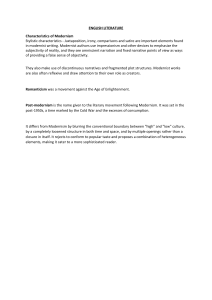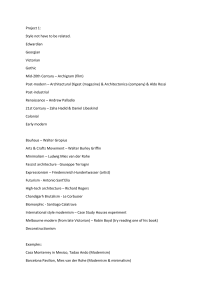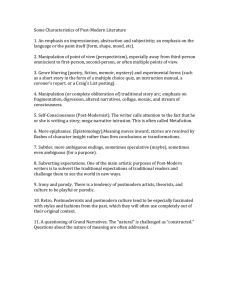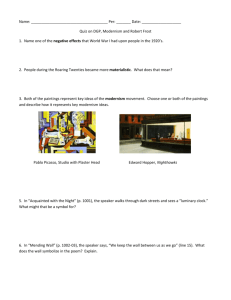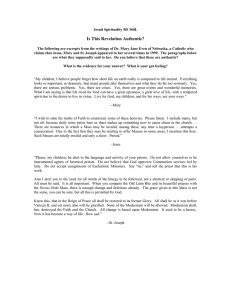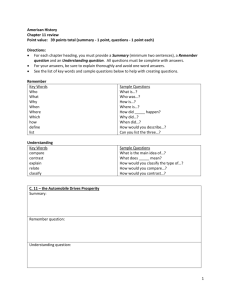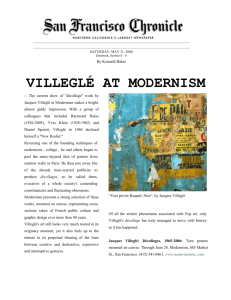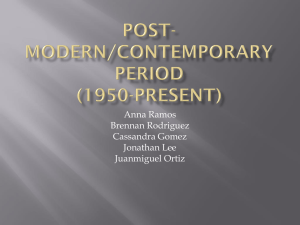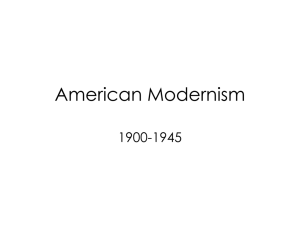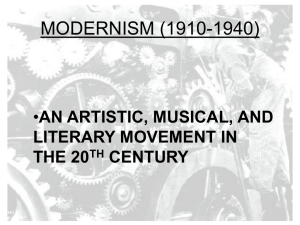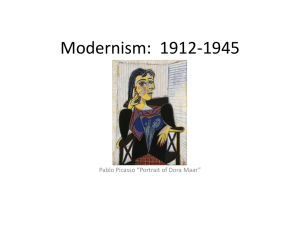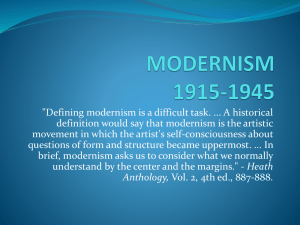Post Modern Era 1945
advertisement
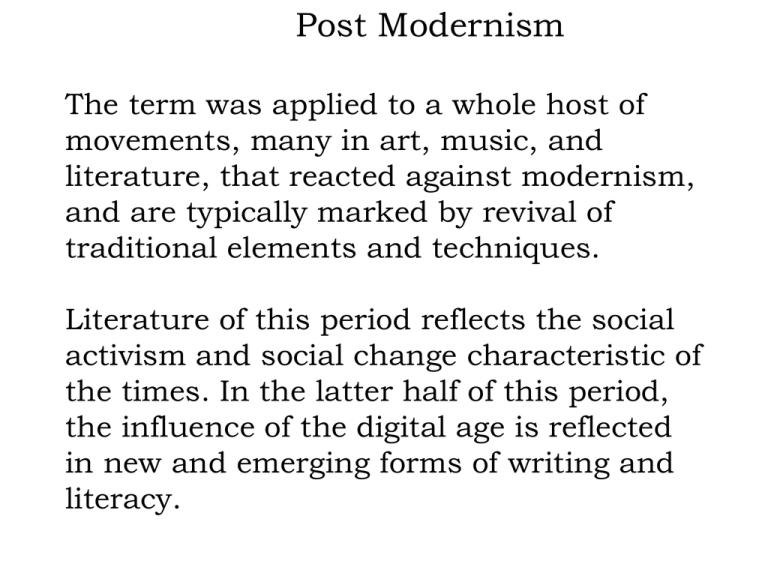
Post Modernism The term was applied to a whole host of movements, many in art, music, and literature, that reacted against modernism, and are typically marked by revival of traditional elements and techniques. Literature of this period reflects the social activism and social change characteristic of the times. In the latter half of this period, the influence of the digital age is reflected in new and emerging forms of writing and literacy. The Post Modern period of American Literature Post-modernism literally means 'after the modernist movement'. While "modern" itself refers to something "related to the present", the movement of modernism and the following reaction of postmodernism are defined by a set of perspectives. It is used in critical theory to refer to a point of departure for works of literature, drama, architecture, cinema and design, as well as in marketing and business and the interpretation of history, law and culture in the late 20th century. Styles and Genres of Post-Modern Literature in America: Playfulness Black Humor Pastiche Intertextuality Metafiction Poioumena Temporal distortion, Irony Technoculture Hyperreality Paranoia Maximalism Minimalism Faction Fabulation Magic realism Historiographic Metafiction Authors: •Joseph Heller •Kurt Vonnegut •E.L. Doctorow •Don DeLillo •David Foster Wallace •Samuel Beckett •Truman Capote •Norman Mailer •Salman Rushdie •Gunter Grass POST-MODERNISM There is exploration of fantasies and extremities of experience. There are parodies of other literary styles, formal and linguistic experimentation. “Black humor” – employing elements of cruelty and shock to make readers see the ugly, the awful in new ways. see Catch-22 Literature is a game between an author and the reader. There is frequent use of popular culture. Frequent use of first person narration – can be an animal. There is a celebration of chaos, acceptance of entropy (world moving towards inert uniformity and disintegration, a measure of the lack of order in a system, that includes the idea that the lack of order increases over a period in time). There is less confidence in art and hence the artist. Myth, religion, history presented as constructs of the human mind. There is a movement toward moral relativity. There is a profound interest in the problems of literary creation. Southern writers: The use of the grotesque is a frequent feature. There is a fascination with extreme and perverse incongruities of character and scene. Writers cultivate the verbal effect There are real problems of the situation of the blacks in the South The sense of history is a primary concern. There is a loss of engagement with the public and social happenings. The Beat Generation: Inspiration comes from W. Whitman, Buddha, eastern religion, drugs, spontaneity, opposition to constricting forms both poetic or political. Jargonized language is frequently used in worlds of the drug subculture, black music and the jazz milieu etc. There are frequent references to mythical religions Key to many post-modern writing is the use of comic touches
